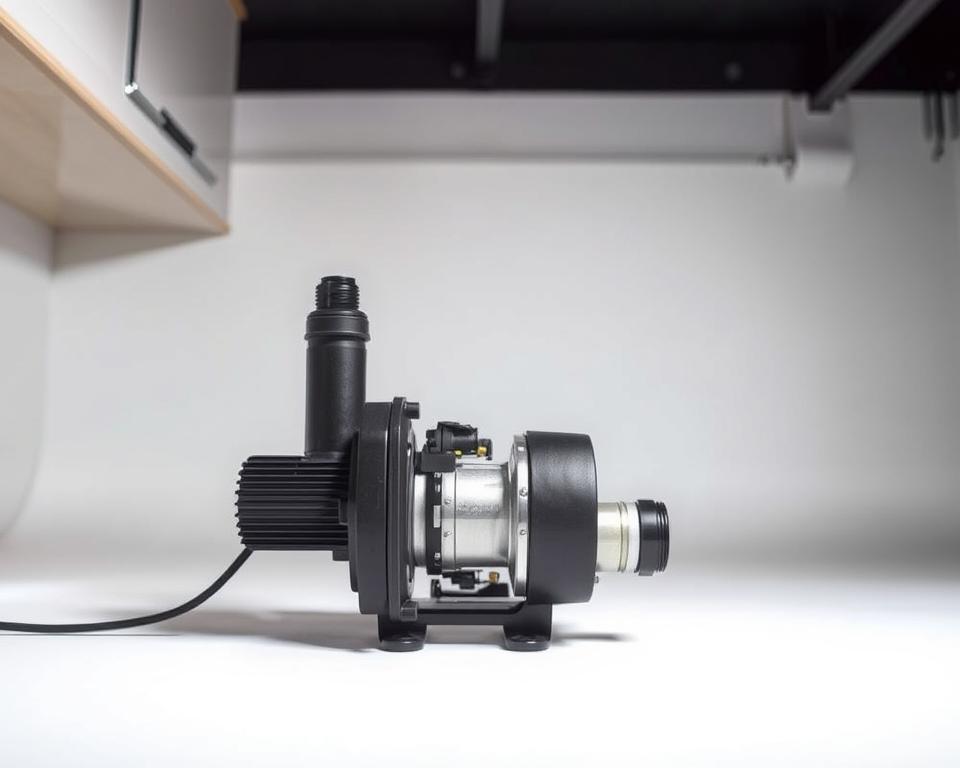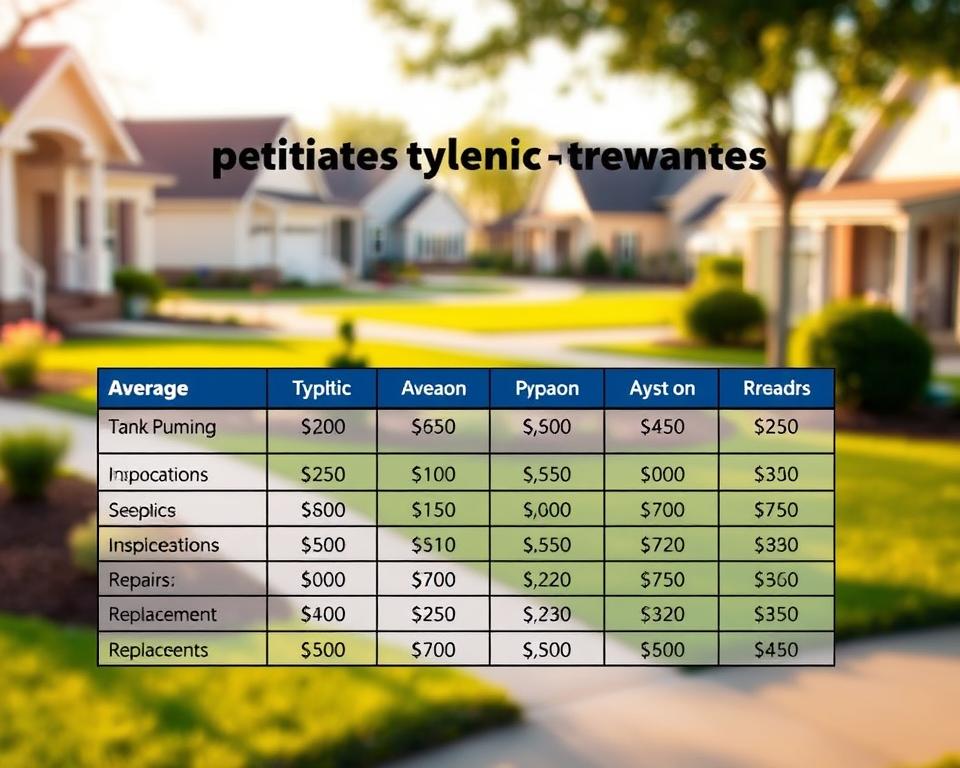RV Waste Pump: Vital Service Guidelines
Is your RV’s black water pump really road-ready, or might it lead to camping woes? Keeping your motorhome’s waste system in prime condition is imperative. It lets you avoid bad smells, obstructions, and expensive damage. This guide provides indispensable advice to secure your sewage pump operates smoothly, keeping your travels stress-free.
Getting to Know Your RV’s Plumbing System
The RV plumbing system is crucial for any smooth journey. It divides into two main parts: the black water system and the gray water system – RV septic service near me. The black water system gathers waste from the toilet, whereas the gray water system processes wastewater from sinks and showers.
The systems feature drain lines that lead to different tanks, designed for efficient waste management. Each tank has a vent to avert gas from building up, keeping the operation is safe and pleasant. Proper waste management in an RV is vital to prevent leaks or bad odors. By knowing both black and gray water tanks, RV owners can upkeep and manage waste better.
Understanding how your RV’s plumbing works lets you detect issues early. Routine maintenance makes trips smoother for everyone. Taking initiative with your RV’s plumbing system guarantees reliability during your travels.
Kinds of RV Water Tanks
Owning RVs involves being aware of the different tanks. Each one is crucial to your RV’s system, calling for regular upkeep.
The fresh water tank stores drinking water. It’s indispensable for a pleasant RV experience.
The gray water tank receives sink, shower, and other non-Septic wastewater. Overseeing this tank keeps your RV hygienic while traveling. The black water tank, on the other hand, contains toilet waste. It needs routine emptying and diligent maintenance to avoid issues.
By understanding the fresh, gray, and black water tanks, RV owners can smoothly run their systems. This forethought and continual maintenance secure smooth running of the waste management system.
Operation of Black Water Tanks
The function of the black water tank is crucial in RV waste management. It receives waste from the toilet via a gravity-fed system. Upon flushing, waste and water are sent into the tank, to be stored until removal is necessary. It’s important to keep water levels optimized in the toilet to stop solid waste buildup.
Grasping how RV waste tanks function can sidestep clogs and odors. Without proper care, solid waste hardens, causing blockages and emptying difficulties. Proper tank flushing techniques are critical to preventing these issues, securing smooth functionality.
Routine inspection of tank mechanics is advised for RV owners. This includes checking flushing methods and ensuring adequate water flow. Mastering these essentials aids in efficient tank maintenance, forestalling expensive fixes later.

Key Maintenance Tips for Your RV Black Water Pump
Doing regular maintenance on your RV’s black water pump is imperative. Begin with choosing RV-safe toilet paper to minimize clogs and improve flow. A deep flush can remove waste and cut bad smells. Periodically cleaning the tank helps avoid residue buildup, keeping your RV fresh and comfortable.
Carry out frequent inspections to examine your pump’s condition. Look for any signs of wear or damage that could hinder its function. Using specialized tank treatments, like those from All in Sanitation, can greatly improve both performance and cleanliness. Sticking to these tips can lengthen your pump’s life and upgrade your RV’s living conditions.
Select Camper-Safe Toilet Paper
Maintaining your RV’s black water system includes vital steps. One critical move is using RV-safe toilet paper for clog prevention. This specifically designed product decomposes quickly in water, perfect for RV sanitation systems.
RV-safe toilet paper is essential for tank maintenance. It dissolves fast, preventing blockages from slow-decomposing materials. This enhances waste disposal efficiency and keeps the plumbing clear.
Pick brands identified as RV-safe when buying toilet paper. These products lessen clog risks and increase your black water tank‘s lifespan by sidestepping buildup. Continual use secures a stress-free camping experience, free from plumbing troubles.
Complete Tank Rinsing
Deep-flushing your black water tank is key for smart waste management in your RV. To support waste movement, verify the toilet bowl is properly topped up before flushing. Many RVs are equipped with built-in tank flush systems to make the process more efficient. For RVs without this feature, attaching tank rinsers that attach to the sewer outlet offers a good alternative.
Correct tank flushing facilitates waste removal and stops solid accumulations and bad smells. Adhering to this process delivers your RV stays pleasant, making your travels more enjoyable. A focus on regular and complete tank flushing will improve hygiene and the overall condition of your RV’s plumbing system.
Stop Residue via Frequent Cleaning
Maintaining your RV’s black water tank unclogged is essential for its peak function. Frequent cleaning eliminates lingering waste inside the tank walls. This means scouring well with water and using specific RV tank cleaners for tough deposits.
By cleaning regularly, you avoid odors and reduce clog risks. A well-maintained tank makes RVing better and helps your plumbing last longer. Add tank maintenance into your routine to secure smooth travels.
Selecting Safe Treatments
Using appropriate chemicals for RV black water pump maintenance is critical for managing waste and eliminating smells. Many RV enthusiasts rely on enzyme-based RV holding tank treatments. These products feature good bacteria to dissolve solids and curb bad odors.
Keeping away from harsh chemicals is important to prevent damage to your plumbing. Such substances can corrode pipes, leading to pricey replacements and diminishing your RV enjoyment. Utilizing safe chemicals for odor control protects your tank and pump’s longevity.
Holding your RV black water tank in top condition improves your travel experience. Using the right holding tank treatment periodically ensures your system works well.
Regularly Emptying Your Tank
It’s essential to empty your RV’s black water tank at the right time for effective disposal. Aiming to do so when the tank is about two-thirds full is wise. This prevents solid waste buildup, providing a quicker emptying process.
Dumping at designated stations is imperative for safe, eco-friendly waste handling. It’s important to watch the tank‘s levels closely. Letting it max out can lead to clogs and make disposal more difficult.
Right intervals and procedures are key for hygienic waste management and can lengthen your plumbing’s life. Maintaining steady oversight and servicing the system properly ensures a pleasant RV living experience.
Seal Checks & Care
Reviewing seals around the toilet and tank is critical for leak prevention. Over time, these seals might break down, leading to odors and potential harm. A detailed inspection will reveal any wear or damage. Detecting issues early allows for quick replacement to secure a secure connection and odor-free RV.
Keeping a bit of water in the toilet bowl aids in preserving seal condition. This preventative measure is essential in RV seal upkeep. It lengthens the seals’ life, halting leaks and foul odors.
Consistent seal maintenance can prevent pricey work later. By prioritizing seal health, RV owners ensure a pleasant journey.
Additional Tips for Long-Term Maintenance
Booking professional servicing for your RV at least once a year is prudent, particularly for black water tank care. This strategy supports catching trouble fast and preserves your plumbing system’s integrity.
When preparing your RV for storage, completely clean and empty the black water tank first. Think about antifreeze to protect from damage from remaining water during cold seasons. Taking this step is important for safeguarding the system, guaranteeing it’s ready for your next adventure.
Regular inspections and preventive actions are key to lengthening your sanitation system’s life. Observing connections, hoses, and seals ensures smooth operations. This method enhances your RV experience, making it enjoyable all year round.
Securing your RV’s black water pump is well-maintained is crucial for a stress-free camping journey. By adhering to the maintenance tips shared, you can retain your black water system functioning well. It’s essential to focus on steady cleansing, applying correct flushing methods, and choosing appropriate chemicals for waste management.
By satisfying these maintenance requirements, you will eliminate unpleasant odors and blockages. This also extends your RV plumbing system’s durability. Proactive care of the RV black water pump leads to more time enjoying the outdoors, free from potential setbacks.
Bear in mind, proper upkeep is key next time you gear up for an outing. It’s not the highlight of RV ownership, yet it significantly boosts your travel experience.


